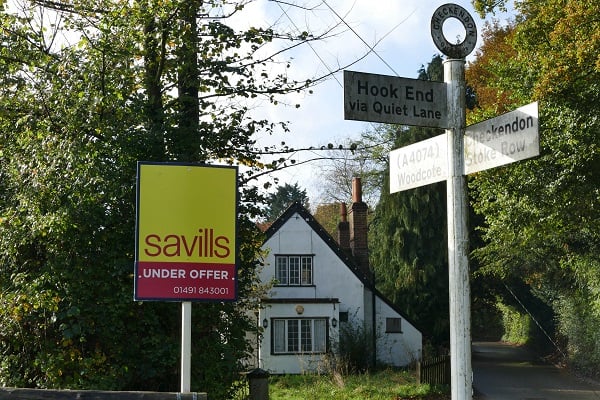The latest market analysis by estate and lettings agent, Barrows and Forrester, analysed the current cost of a deposit for a first-time buyer, based on 15% of the current first-time buyer’s house price.
They then looked at how this cost has changed since 2012, calculating the cost of a deposit a decade ago once adjusting for inflation.
The research shows that in 2012, the average first-time buyer’s house price was £141,572, requiring a 15% mortgage deposit of £21,236, or £24,660 when adjusting for inflation.
Today the cost of a first home has climbed to £231,917, with the average deposit sitting at £34,787. This is a £10,127 jump, increasing by 41% in the last decade.
Regionally, the East of England has seen this barrier to homeownership climb by the greatest margin, with the average first-time buyer deposit now 51% more than it was a decade ago.
London ranks second along with the East Midlands with a 47% increase, but it’s the capital that accounts for some of the largest increases at local authority level.
In Waltham Forest, the cost of the average first-time buyer mortgage deposit has climbed by 79% since 2012. In Barking and Dagenham it’s up 77%, while Thanet has seen the largest jump outside of London at 73%.
Hastings (+68%) and Medway (+65%) have also seen some of the largest increases, as have Bexley (64%), Thurrock (64%), Bristol (63%), North Northamptonshire (62%) and Dover (62%).
Scotland is home to the only three areas to have seen the cost of a mortgage deposit on a first home decline in the last 10 years.
Aberdeen (-25%), the wider area of Aberdeenshire (-3%) and Inverclyde (-2%) have all seen a decline, while Middlesbrough has seen the smallest increase in England – up by just 6%.
James Forrester, Managing Director of Barrows and Forrester said, “The outlook is currently a very bleak one for those yet to secure that first foot on the property ladder. House prices have soared over the last 10 years, let alone during the pandemic, and so the initial financial hurdle of a mortgage deposit is far, far higher than it was in 2012.
“At the same time, earnings have failed to keep pace, with a sustained period of record low-interest rates also making the task of saving a deposit extremely difficult.
“While our savings may now accumulate a greater level of interest with the base rate increasing, the downside is the cost of securing and repaying a mortgage is also starting to climb considerably.
“So even those that are able to make it to that first rung of the ladder will now find their household income stretched even further due to higher mortgage rates.”






Leave a Comment